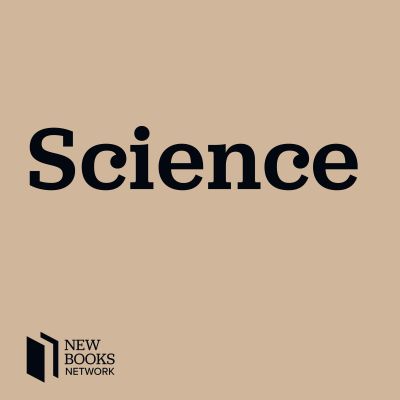Interviews with Scientists about their New Books Support our show by becoming a premium member! https://newbooksnetwork.supportingcast.fm/science
https://newbooksnetwork.com
Gesamtlänge aller Episoden: 31 days 7 hours
episode 3: Thom van Dooren, "The Wake of Crows: Living and Dying in Shared Worlds" (Columbia UP, 2019)
An interview with Thom van Dooren
episode 108: Lee McIntyre, "The Scientific Attitude: Defending Science from Denial, Fraud, and Pseudoscience" (MIT Press, 2019)
What can explain the success of science as an endeavor for getting closer to truth?
episode 135: Jonathan B. Losos, "The Cat's Meow: How Cats Evolved from the Savanna to Your Sofa" (Viking, 2023)
An interview with Jonathan B. Losos
episode 147: Toward Equity in Science: A Discussion with Cassidy Sugimoto and Vincent Larivière
Listen to this interview of Cassidy Sugimoto and Vincent Larivière, co-authors of Equity for Women in Science: Dismantling Systemic Barriers to Advancement (Harvard UP, 2023). Cassidy is Professor and Tom and Marie Patton School Chair in the School of Public Policy at the Georgia Institute of Technology. She is also President of the International Society for Scientometrics and Informetrics...
episode 26: Lawrence Sherman and Dennis Plies, "Every Brain Needs Music: The Neuroscience of Making and Listening to Music" (Columbia UP, 2023)
An interview with Lawrence Sherman and Dennis Plies
episode 328: Philip Goff, "Why? The Purpose of the Universe" (Oxford UP, 2023)
Does the universe have a purpose? If it does, how is this connected to the meaningfulness that we seek in our lives? In Why? The Purpose of the Universe (Oxford University Press, 2023), Philip Goff argues for cosmic purposivism, the idea that the universe does have a purpose – although this is not because there is an all-powerful God who provides it with one...
episode 145: Services and Training for Publishing Scientists: The Current Direction of Travel
A Discussion with John Bond of Riverwinds Consulting
episode 76: Coleen T. Murphy, "How We Age: The Science of Longevity" (Princeton UP, 2023)
An interview with Coleen T. Murphy
episode 88: The Future of Innovation: A Discussion with Min W. Jung
Humans have been so dominant on Earth in large part because of their capacity to innovate – but how does that work exactly? Why can they innovate so much? That issue has been studied by Professor Min W. Jung from the Center for Synaptic Brain Dysfunctions at the Institute for Basic Science in South Korea. He is the author of A Brain for Innovation: The Neuroscience of Imagination and Abstract Thinking (Columbia UP, 2023). Listen to him in conversation with Owen Bennett Jones...
episode 74: Darwinian Accident or Divine Architect? (with Jay Richards)
The Debate between Natural Selection and Intelligence Design
